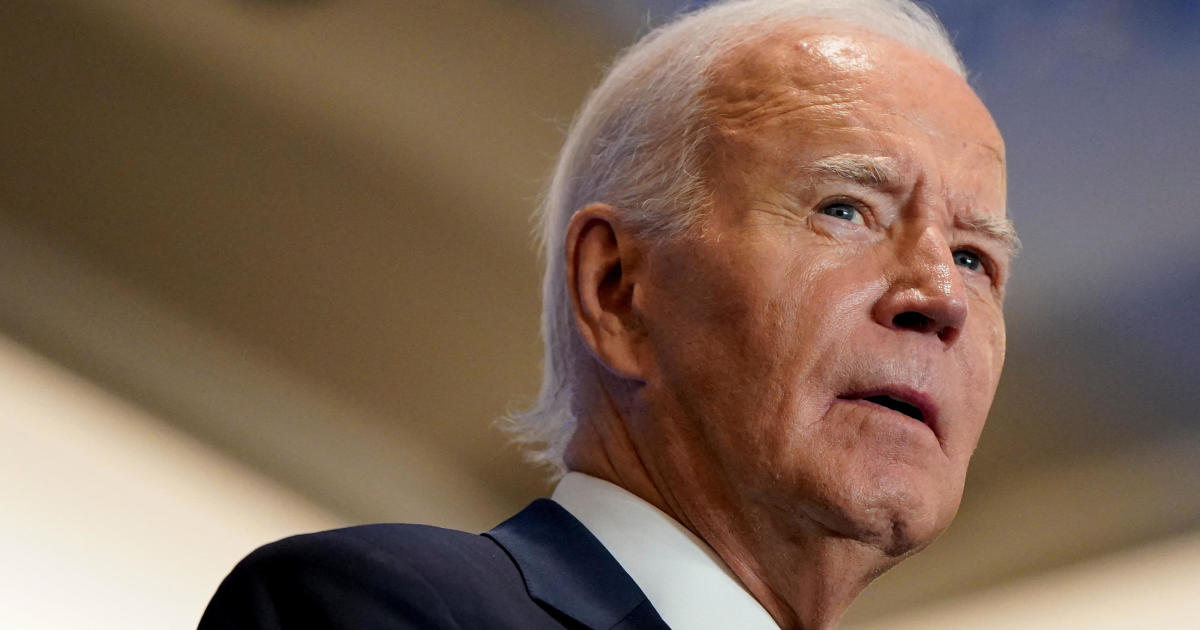The assassination of Hassan Nasrallah, the leader of Hezbollah, in a recent airstrike has significantly escalated tensions in the Middle East. President Biden’s declaration that the killing was a “measure of justice” has sparked widespread debate, highlighting the complex geopolitical dynamics at play and raising serious questions about the potential for further escalation. This event, occurring within the larger context of the ongoing conflict between Israel and Hamas, demands careful consideration of its immediate and long-term consequences. The ramifications extend beyond the immediate region, impacting global security and international relations. The following analysis delves into the key aspects of this significant event.
The Assassination and its Justification
The Circumstances Surrounding Nasrallah’s Death
Hassan Nasrallah’s death, resulting from a series of airstrikes in Beirut, marked a significant turning point in the ongoing conflict. The White House statement attributed the strikes to Nasrallah’s alleged role in directing attacks against both American and Israeli citizens over many years. The statement emphasized his collaboration with Hamas in initiating what he termed a “northern front” against Israel, escalating the conflict further. The timing of the strikes, amidst already intense fighting between Israel and Hezbollah, heightened the impact. The use of airstrikes, rather than other forms of engagement, underscores a deliberate strategy aimed at neutralizing a key figure within the Hezbollah organization while minimizing the direct involvement of ground troops. However, the method used has come under intense scrutiny, particularly considering the potential for civilian casualties, a factor cited in international criticisms.
The Biden Administration’s Response
President Biden’s statement, characterizing Nasrallah’s death as “a measure of justice,” reflects a decisive stance towards Hezbollah’s activities and its alleged involvement in terrorist attacks. This response highlights a key aspect of U.S. foreign policy: the firm commitment to combating terrorism and protecting its interests and allies. However, it also suggests a willingness to utilize targeted strikes as a tool for achieving geopolitical goals, which is likely to spark continued controversy given the wider ethical considerations and humanitarian impacts of such measures. The statement also mentions the U.S.’s ongoing support for Israel’s right to self-defense against numerous armed groups supported by Iran, indicating a potentially more entrenched alignment on the geopolitical scene.
International Reactions and Criticism
The assassination has elicited a variety of international responses. Some nations have condemned the strike as a violation of international law, citing concerns about potential civilian casualties and raising questions on accountability and due process. Others, particularly those with close ties to the U.S. and Israel, have offered muted approval. This divergence in opinion reflects deeply rooted differences on views on counter-terrorism strategy and legitimacy of state-sponsored killings. Criticism centered largely on the lack of transparency surrounding the operation, with some analysts speculating it was a calculated move with the broader context of regional conflicts considered, alongside an apparent disregard for international norms on warfare.
The Wider Geopolitical Context
The Escalation of the Israel-Hamas Conflict
Nasrallah’s assassination took place amidst the already intensifying conflict between Israel and Hamas. His alleged involvement in coordinating Hezbollah’s actions with Hamas underscores the interconnectedness of these conflicts. The escalation in Lebanon following the assassination resulted in a large number of causalities. Hezbollah’s participation expands the geographic scope of the conflict. and increased the humanitarian crisis drastically. It is widely considered that both sides were involved in an escalation spiral, where targeted strikes and retaliatory actions become more frequent, expanding the area of conflict beyond its initial confines. This raises concerns about the potential for regional war, involving multiple actors and significantly wider geographic spread.
Iran’s Role and Regional Implications
Iran’s support for Hezbollah adds another layer of complexity. The assassination could further strain relations between the U.S. and Iran, and possibly lead to more serious actions and further increase instability across a wider geographical spread. This might manifest through proxy conflicts, and an increased focus on the conflict will undoubtedly impact the availability of crucial aid across neighboring states. Iran’s support for other militant groups in the region also raises fears of wider regional conflict with multiple theaters and parties involved, and is likely to affect a wide array of regional alliances. This has heightened regional uncertainty given the broader international relations between neighboring countries.
Potential Consequences and Future Scenarios
The Risk of Wider Conflict
The assassination dramatically increases the risk of a wider regional conflict, potentially engulfing Lebanon, Syria, and other states in the area. This situation is made worse due to ongoing instability across these affected regions. Increased tensions raise immediate security concerns across many areas and a potentially devastating human cost would be incurred. Further escalation carries with it the extremely likely scenario of global instability and severe economic consequences that could easily overwhelm affected states, leading to major political consequences. The involvement of external powers through arms supply and financial resources makes such escalation even more difficult to prevent and control.
The Search for a Ceasefire
President Biden’s call for a cease-fire reflects the urgent need to de-escalate the situation. Achieving a ceasefire, however, presents formidable challenges. The distrust between opposing parties, the multiple actors involved, and the complexity of the underlying issues all make reaching lasting agreement very unlikely at present. Furthermore, it appears highly probable that the many differing priorities held by various players involved will hinder any process seeking meaningful agreements and reconciliation.
Takeaways
- The assassination of Hassan Nasrallah has dramatically escalated tensions in the Middle East.
- The Biden administration’s justification for the strike highlights a complex interplay of counter-terrorism strategies and geopolitical objectives.
- The event underscores the interconnectedness of regional conflicts and the risks of wider escalation.
- The call for a ceasefire highlights the urgent need for diplomatic efforts to de-escalate the situation and avert a broader war. However, the prospect of reaching lasting agreement seems severely hindered by existing mistrust and deep-rooted conflicts.




